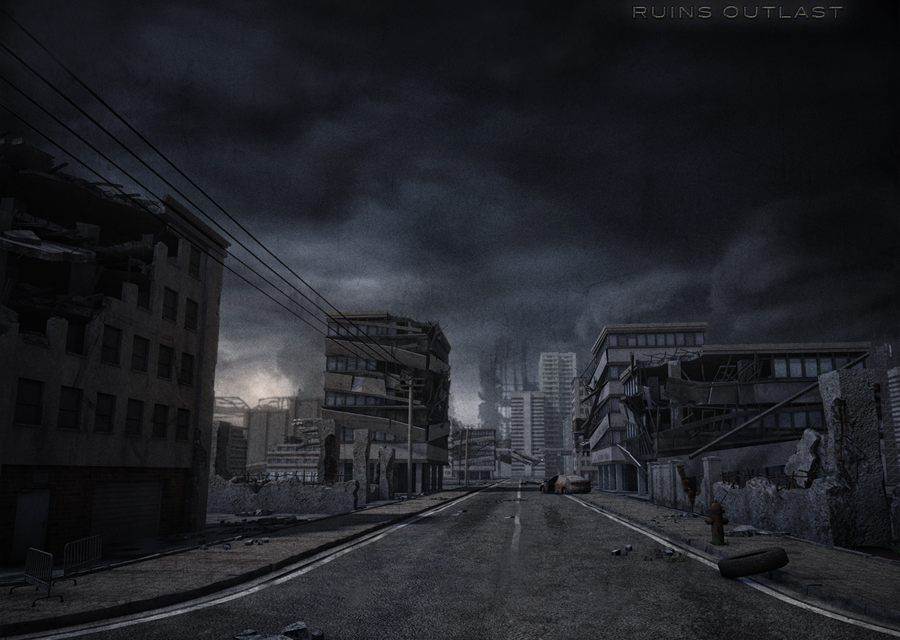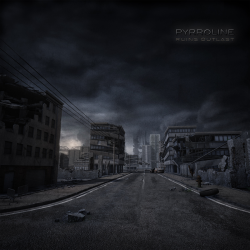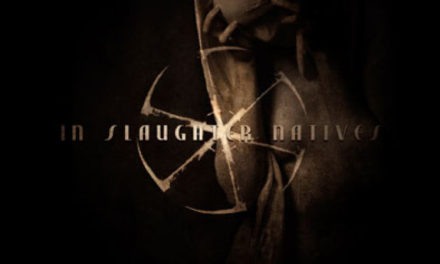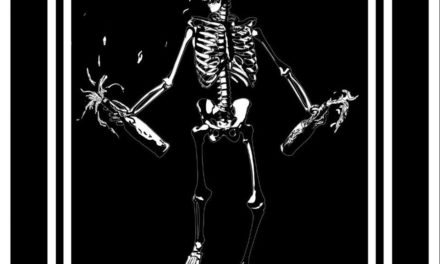Pyrroline
Ruins Outlast
Electro Aggression Records
Pyrroline make electro-industrial, and if you remember when that term was in common usage, you’ll have the gist of it even if you’ve never heard a note. Their new album is from that school of dark, emotive stuff that had its heyday the 90’s, music descended equally from the Vancouver sound and European EBM, and plied by labels like Celtic Circle and Zoth Ommog. There’s almost an asceticism to how Pyrroline approach making tunes in that tradition, rejecting contemporary influence to the point where you could be forgiven for thinking it was produced 20 years ago. Far from being a simple gimmick or creative hangup, the German duo’s devotion to a bygone sound is a shell that houses the actual workings of their songs, the examination of which reveals an unmistakable devotion to craft.
Largely mid-tempo and built from the ground up on a steady foundation of snare heavy drum programming and burbling bass, there isn’t a terrific variety in the style of song found on Ruins Outlast. Forgoing aggression for a more melancholic bearing, the melodies are alternately carried by complex pads, tightly arpeggiated leads and synth strings, with band members Arnte and Schmoun each contributing vocals, the former somewhere in the processed Leeb-spectrum and the latter in the icy-female mode. That lack of diversity might prove initially off-putting, but after multiple listens I started to admire how much Pyrroline do while only varying their approach ever so slightly, with no one component seeming like a clone or callback to another. There are highlights (like the terrific “Ruins Outlast – Cultures Fall” and the slowly ascending “Precious Time”), but it’s a record that gains value when listened to as a complete work, creating it’s own framework for the audience with each track.
Records like this live and die by the programming though, and to my mind that’s where much of the album’s strength comes from. Although not immediately apparent in the vocal cuts, instrumentals like the rapidly evolving “Godmode” and the richly produced “The Round” show a deep understanding of how not only how to construct sequences, but how to build them into songs. So much of what I like about albums like this lies beyond the easily identified charms of hooks and choruses and in the subtleties of how a bassline plays against a drum pattern, or a verse gradually varies with each repetition. It’s in that sort of fastidious, detail-oriented milieu that Pyrroline shine brightest; the careful way in which a song like “The Enclave” flows between bubbling synthlines, or how “Incomplete” gradually shifts focus from the rhythm section to sweepy pads. None of this is coincidence or arrived at by accident, every nicety is considered, every decision absolutely deliberate. While some of those choices can occasionally be a touch puzzling (I suppose I can accept the Terminator and Blade Runner samples on “An Animal” as being homages to the original run of dark electro acts, but they still stick out as unnecessary), they don’t come off as laziness or as shortcuts either.
I don’t honestly know how much appeal there is in what Pyrroline does for casual fans: the mixture of nostalgia and the rewards of careful listening that mark my enjoyment of it certainly aren’t the easiest selling point unless you know you already like this sort of thing. Still, I suppose that in contrast to the diminishing returns apparent in a scene where bands attempt to one up each other with progressively crasser appeals to whatever will yield an easily digested and forgotten dance hit, it’s good to have bands like Pyrroline around. Listening to music shouldn’t be work, but neither should being attentive go unrewarded, and Ruins Outlast has so much to uncover and enjoy. Recommended for fans of Dead When I Found Her, classic Mentallo & the Fixer and those looking for a pleasantly deep LP experience.






